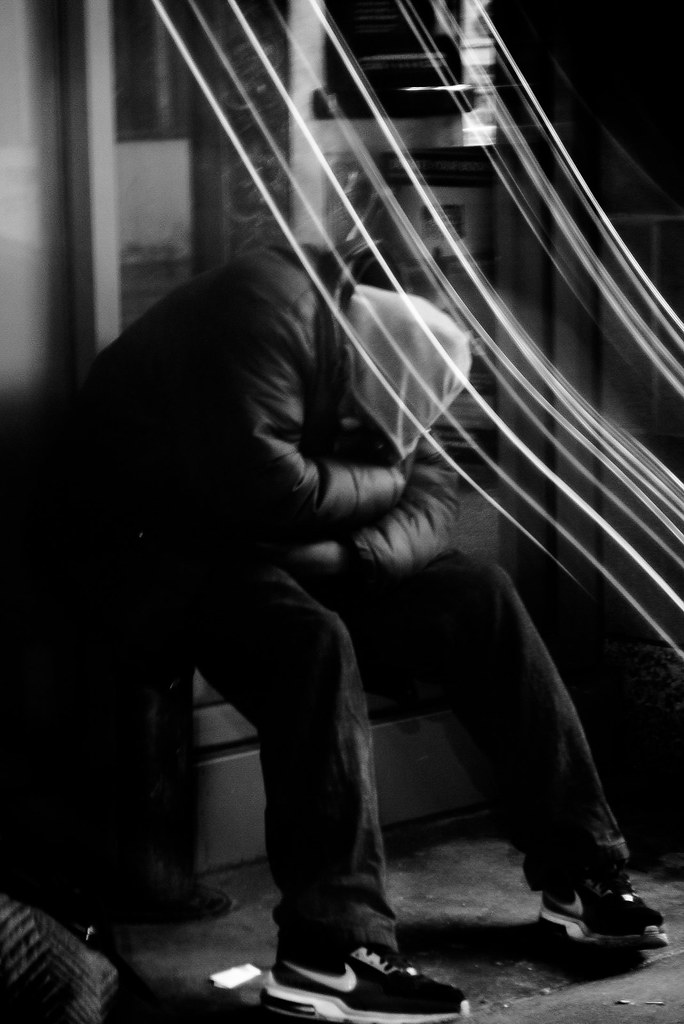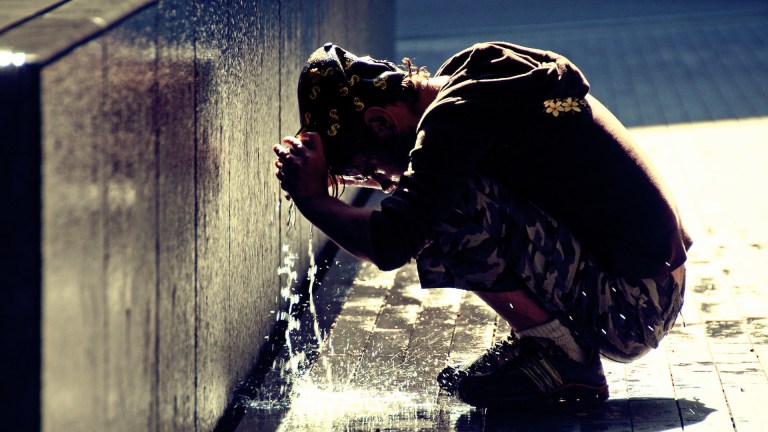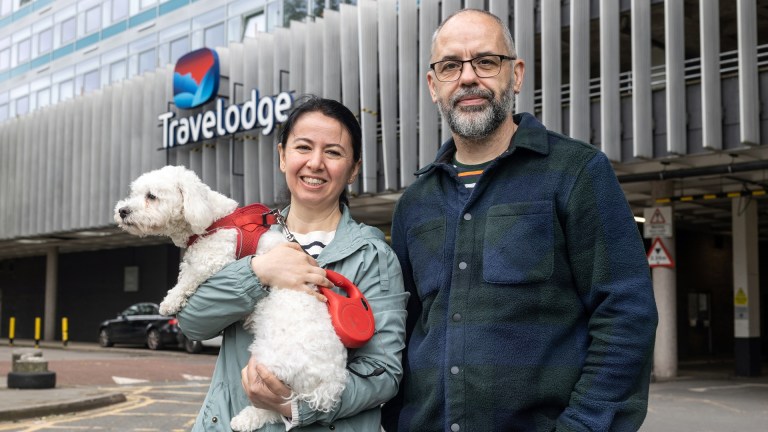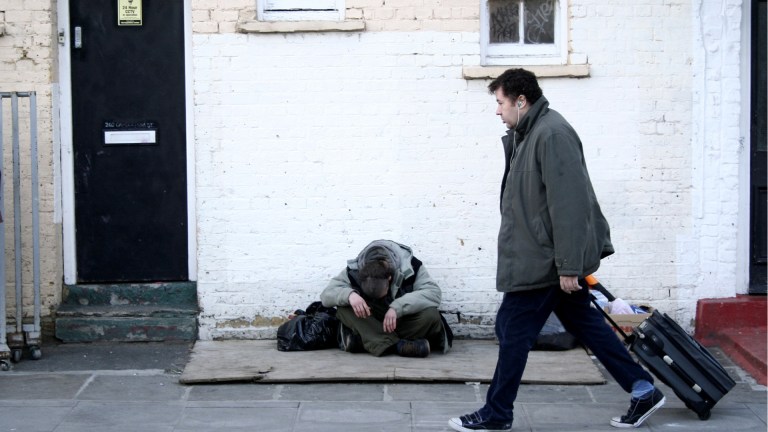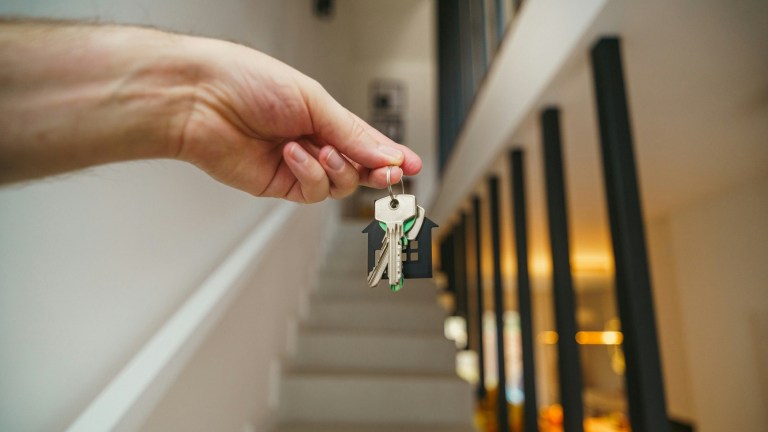YOU WANTED TO KNOW…
What should you do if you see a homeless person?
A warm greeting and some simple small talk can make all the difference. Just think that the person you pass who is living on the streets might not have spoken to anyone that day – just a simple ‘hello, how are you?’ could make an enormous difference.
To connect rough sleepers with services that can help in England and Wales, send an alert to StreetLink – an organisation that helps the homeless by connecting people living on the streets with local authority and outreach teams to get them support. There is an app for contact, but they’re also on 0300 5000 914.
What can I do to fight homelessness?
If you spot a Big Issue vendor, buy the magazine and ALWAYS take your copy – they’re working hard, and every sale helps them to move up and on. Many charities provide emergency shelter – Centrepoint in London works specifically with young people, the Salvation Army runs hostels, drop-in centres, does frontline work with rough sleepers and offers a wide range of services across the UK. Others, like Crisis, offer support to help people out of homelessness, and Shelter works towards preventing people becoming homeless as well as assisting those who are already homeless. There are local charities and shelters right across the UK, and supporting these organisations makes a big difference – they are experts and can connect people with the help they need.
How many people are homeless in the UK?
Homelessness is not just rough sleeping – though that’s the most visible version; it also means people living in temporary accommodation like hostels and B&Bs, sleeping on other people’s couches, staying temporarily with friends or relatives. Figures also track the numbers of those who are vulnerably housed or at risk
of homelessness.
Between January and March in England 70,430 households were assessed as homeless or threatened with homelessness – a sharp rise of 10.7 per cent on last year. In 2018-19 in Scotland 36,465 homeless applications were made, and 29,894 households were assessed as homeless by their local authority. In Wales every year more than 15,000 people become homeless, including 2,800 children.
Are there more rough sleepers than before? Why is the problem getting worse?
The government’s figures show that 4,677 people slept rough in England last year – but this figure is widely thought to be a significant underestimate, as official methods of counting rough sleepers are recognised as being unfit for purpose.
We reported on this issue earlier this year.
How many people died homeless last year?
In England and Wales 726 homeless people died in 2018 according to the Office for National Statistics, a rise of more than 20 per cent on the previous year. It’s the highest year-on-year increase since 2013. The average age of death was 45 for homeless men and 43 for women; for the rest of the population the average ages are 76 and 81.
What is the cause of homelessness? Is it a housing problem?
There are many complex reasons why people become homeless. They include a lack of social or affordable housing, inadequate regulation of rental agreements, redundancy, poor physical or mental health, bereavement, domestic violence, lack of central government funding to councils to deal with housing shortages and cuts in government funding to homelessness services (£1bn in the last decade). It is a public health problem, a social issue and a housing problem.
Ahead of #GE2019 next week, @jeremycorbyn has vowed to give Chequers to rough sleepers should @UKLabour get in. https://t.co/xUYh55WNA4… pic.twitter.com/Ze07LKePqG
— Big Issue (@BigIssue) December 5, 2019
What are the effects of homelessness?
Poor mental and physical health are the biggest impacts of being homeless – and the age of death for homeless people is significantly lower than for the rest of the population (see left). Specialist homelessness mental health services are either gone orvery hard to access. Organisations offering addiction services struggle under funding cuts and increased demand. Mental and physical health issues contribute to someone sleeping rough and the longer they do, the worse the problems get.
USEFUL CONTACTS
The Big Issue Foundation, Streetlink, Centrepoint, Salvation Army, Crisis, Shelter
